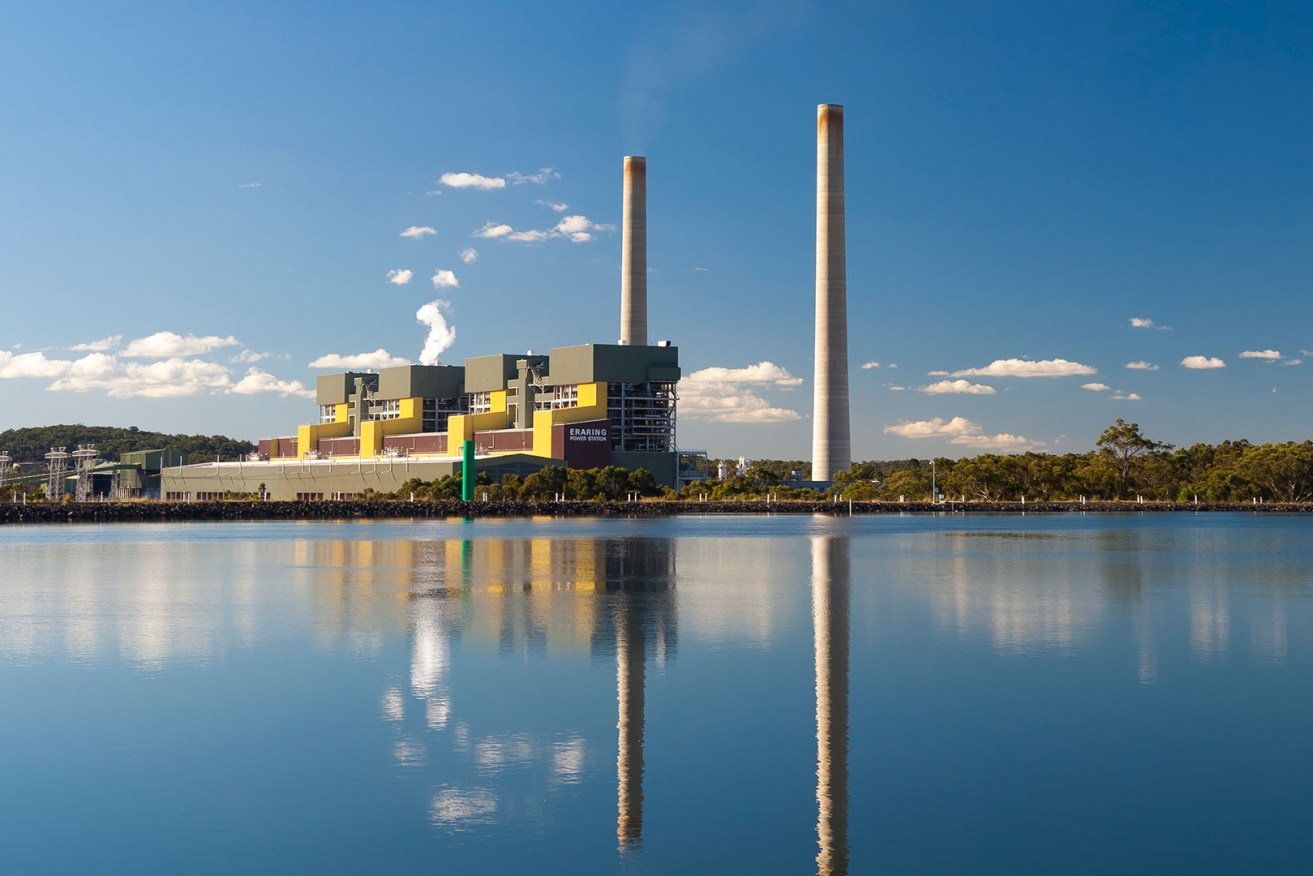Origin warns that low-price energy market is unsustainable
Origin has warned that wholesale energy prices were unsustainable which was likely to lead to “a supply response” of companies withdrawing generation.


The Eraring power station is generating at its lowest possible level
Prices severely impacted the company’s earnings. Origin reported a net profit of just $13 million for the six months to December 31. Its underlying earnings more than halved to $224 million.
Origin will pay a 12.5 cent dividend.
Its competitor, Santos, recorded a net loss of $US357 million ($A460 million), as oil prices carved out large chunks of its profits. Its underlying result was $US287 million. Santos will pay a 5 cent dividend.
Origin managing director Frank Calabria said the company’s sole remaining coal asset, the Eraring power station, was now operating at a minimum level of generation during the middle of the day because of low wholesale prices.
Calabria said the wholesale prices were below the cost of a new build and unsustainable.
“There will be a supply response and it’s just whether it’s planned or unplanned. That’s really where the market is at,” he said.
Despite the poor result, analysts were upbeat about Origin’s result with its integrated gas division about 15 per cent above expectations.
Origin also talked up the performance of its APLNG project at Curtis Island, near Gladstone, where production has improved.
RBC Capital Markets said the outlook for APLNG was positive and it was forecasting production of about 705 petajoules for the year “and see the potential for further upgrades as the period progresses.”
“In conjunction with a strong production outlook, we forecast realised LNG pricing will improve over the second half of 2021 as LNG sales benefit from the rebound in oil prices,” RBC said.
“Energy Markets was also 14 per cent ahead of our estimates, but with a challenged outlook.”
Both COVID-19 and the La Nina weather pattern, which produced a milder summer so far, have impacted domestic energy markets.
“We expect these pressures to continue into the second half,” RBC said.
“We also believe the outlook for F2022 remains challenged, based on a deteriorating outlook for forward wholesale electricity pricing and high gas purchase costs. We forecast about a 7 per cent drop in earnings from the full year 2021 into 2022.”












